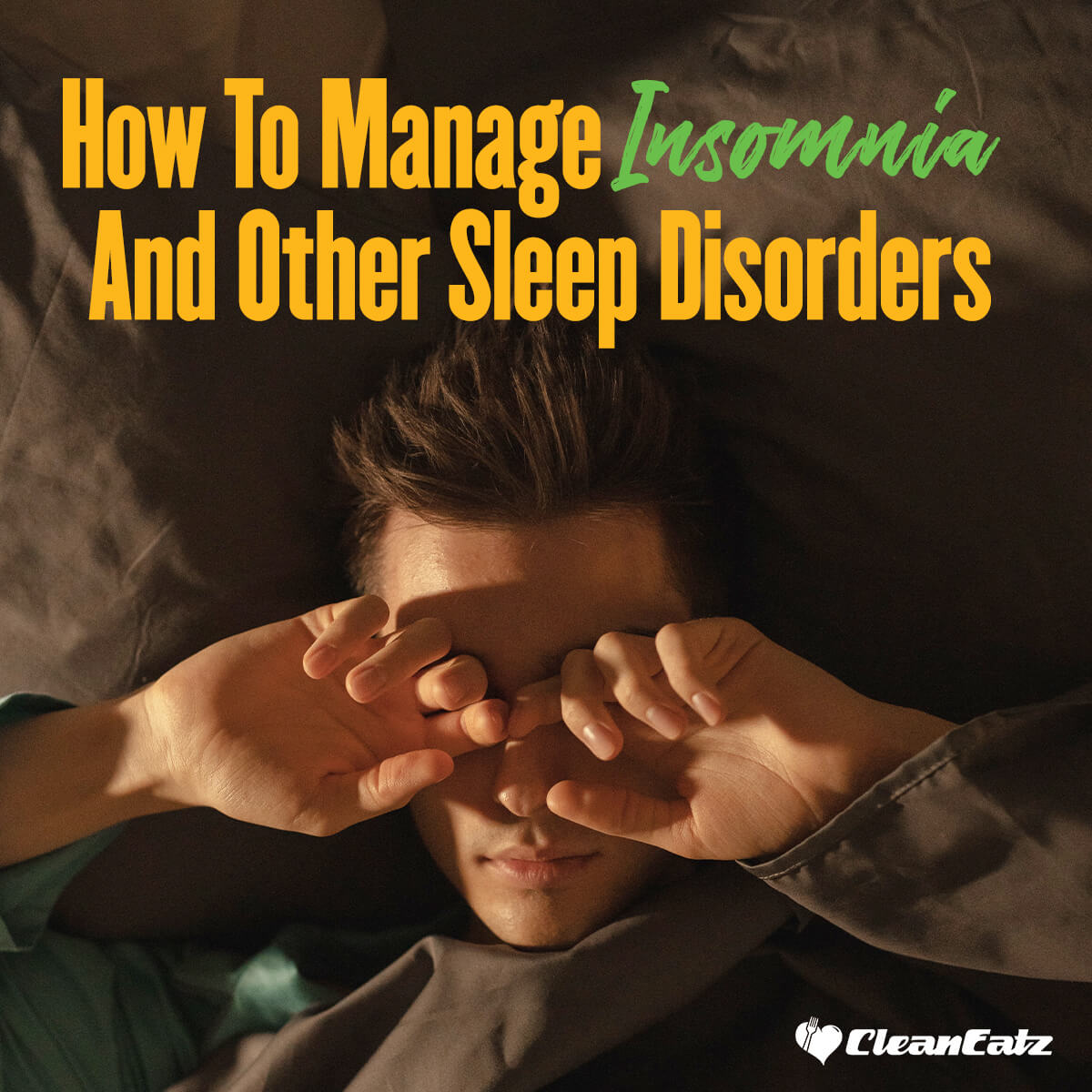
How To Manage Insomnia And Other Sleep Disorders
Jason Nista
Mental Health
|
Sleep
6 minute read
How To Manage Insomnia And Other Sleep Disorders
Sleep is a vital aspect of our health and well-being. It is during sleep that our bodies rejuvenate and restore energy levels. However, for many people, getting a good night’s sleep is a constant battle. Insomnia and other sleep disorders can have a profound impact on our health and daily life, leading to feelings of exhaustion, anxiety, and irritability. In this article, we will explore the causes of sleep disorders, provide practical solutions, and offer tips for better sleep.
Understanding Sleep Disorders
Sleep disorders are a group of conditions that affect the ability to fall asleep, stay asleep, or get restful sleep. Some of the most common sleep disorders include insomnia, sleep apnea, restless leg syndrome, and narcolepsy. The causes of sleep disorders can be complex and can vary from person to person.
Common Symptoms of Sleep Disorders
Some of the most common symptoms of sleep disorders include difficulty falling asleep, staying asleep, or waking up feeling unrefreshed. Other symptoms may include excessive sleepiness during the day, difficulty concentrating, and mood changes.
Types of Sleep Disorders
There are many different types of sleep disorders, and they can be broadly divided into two categories: primary sleep disorders and secondary sleep disorders. Primary sleep disorders are conditions that affect sleep on their own, such as insomnia, sleep apnea, and restless leg syndrome. Secondary sleep disorders are conditions that are related to another underlying condition, such as a medical or mental health condition.
Causes of Sleep Disorders
Lifestyle and Environmental Factors
Lifestyle and environmental factors play a big role in the development of sleep disorders. Environmental factors such as noise, light, and temperature can affect the quality of sleep. Lifestyle factors, such as irregular sleep patterns, excessive caffeine or alcohol consumption, and a lack of physical activity can also contribute to sleep disorders.
Medical Conditions
Medical conditions such as sleep apnea can also cause disruptions to the sleep process. Sleep apnea occurs when breathing stops and starts during sleep, causing awakenings throughout the night. Other medical conditions such as chronic pain, heart disease, and gastrointestinal problems can also affect sleep quality.
Psychological Factors
Sleep disorders can be caused by psychological factors such as stress, anxiety, and depression. These factors can interfere with the body's natural sleep-wake cycle, making it difficult to fall asleep and stay asleep.
Identifying the root cause of sleep disorders is crucial in developing an effective treatment plan. Understanding the underlying causes can help to target the specific issue and provide more effective relief.
How to Manage Insomnia and Other Sleep Disorders
Lifestyle Changes
Making changes to your lifestyle can help to improve sleep quality. First, you have to understand that there are different stages of sleep and each one of them is equally important for you. Simple changes such as avoiding caffeine and alcohol before bedtime, exercise and physical activity, and practicing relaxation techniques can help to promote better sleep.
Natural Remedies
Natural remedies such as herbal teas, aromatherapy, and acupuncture can also help to improve sleep quality.
Medications for Sleep Disorders
Over-the-counter sleep aids such as melatonin can help to improve sleep quality. Prescription medications such as benzodiazepines, non-benzodiazepines, and tricyclic antidepressants can also be used to treat sleep disorders.
Therapy and Counseling
Cognitive-behavioral therapy, talk therapy, and other forms of counseling can also be effective in treating sleep disorders.
Seeking Professional Help
If sleep problems persist, it is important to seek professional help. A doctor or sleep specialist can help diagnose the underlying cause of the sleep disorder and provide individualized treatment recommendations. Sleep disorders can have a profound impact on our health and daily life. Seeking professional help from a doctor or sleep specialist can provide effective relief and help to improve sleep quality.
Tips for Better Sleep
Developing a Bedtime Routine
Establishing a bedtime routine can help to signal to the body that it is time for sleep. A bedtime routine can include activities such as reading a book, taking a warm bath, or practicing relaxation techniques.
Establishing a Consistent Sleep Schedule
Establishing a consistent sleep schedule can help to regulate the body’s circadian rhythm, promoting better sleep. Try to go to bed and wake up at the same time every day, even on weekends.
Creating a Sleep-Friendly Environment
The environment in which we sleep can have a big impact on the quality of sleep. Consider investing in comfortable bedding, a supportive mattress, and a quiet, cool, and dark environment to promote better sleep.
Relaxation Techniques
Relaxation techniques such as deep breathing, meditation, and yoga can help to promote adequate sleep. Consider incorporating these techniques into your bedtime routine to help promote relaxation and better sleep
Exercise and Physical Activity
Exercise and physical activity can help to improve sleep quality by reducing stress and anxiety. Aim to exercise at least 30 minutes per day, but avoid intense exercise within two hours of bedtime.
Avoiding Caffeine and Alcohol Before Bedtime
Caffeine and alcohol can disrupt sleep patterns, so it’s important to avoid these substances before bedtime. Caffeine is a stimulant that can keep you awake, and alcohol can interfere with the quality of sleep. Also, make sure you're eating right to help you sleep better. Try Clean Eatz Kitchen's meal plan delivery that provides its customers with the healthiest meal options and delivers them as well for affordable prices.
Conclusion
Sleep is an essential aspect of our health and well-being, and sleep disorders can have a profound impact on our daily lives. Understanding the causes of sleep disorders, seeking professional help, and incorporating practical solutions and tips for better sleep can help to improve sleep quality and promote overall health and well-being. Don’t be afraid to seek help if you are struggling with sleep, as treating sleep disorders can lead to better health and a more fulfilling life.
FAQs
What are the 3 treatments for any sleep disorder?
The 3 common treatments for sleep disorders include Cognitive-behavioral therapy, medication such as sedatives, antidepressants, and melatonin, and lifestyle changes such as maintaining a consistent sleep schedule, exercising, and avoiding stimulants.
What are the four behavioral tips to improve sleep for insomniacs?
The four behavioral tips to improve sleep for insomniacs include: establishing a consistent sleep schedule, creating a sleep-conducive environment, engaging in relaxation techniques, and avoiding stimulants before bedtime.



